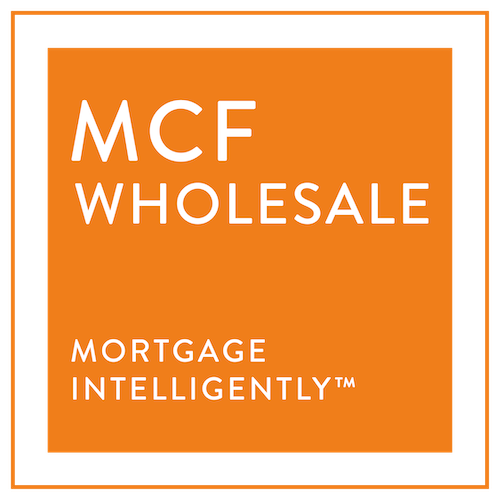Bridge Loan
MCF Wholesale offers a simple bridge loan to meet your borrowers’ transitional financing needs. This is a great product to have available to your current and future clients, who are looking to buy their next home without waiting to sell their current home. Better terms for your borrowers, easier qualification and a simple process you can trust.
Bridge Loan Highlights:
1-4 Single-Family Homes, Condos, and Townhomes
Loan Amounts From $75K-$4M
Cash Out, Purchase, and Refinance Transactions
Up To 80% LTV
Term: 6 – 24 months
Minimum FICO Score of 600 Required
No Pre-Payment Penalty
Escrow Payments
Interest Only Payments
Delayed Purchase Financing Available
Flexible Terms
Must Close in LLC’s, Corporations and LP’s Only
Nationwide Lending
DSCR
MCF Wholesale offers an industry-leading rental loan program. Our loans are specifically catered to serious investors. We have one of the best and most flexible DSCR rental loan programs on the market today. Better terms for your borrowers, easier qualification, and a simple process you can trust.
DSCR Highlights:
Up To $2M Loan Amounts
Minimum FICO Score of 660 Required
30-Year Fixed Rate, ARMs, Interest-Only Available
Qualify Using Interest-Only Payments
Max LTV of 80% for Purchases and Rates & Term Refinances
Max LTV of 75% for Cash-Out Refinances
Short-Term Rentals Available
1-4 Single-Family Homes, Condos, and Townhomes
1.0x Minimum DSCR (for long-term rentals)
1.25x Minimum DSCR (for short-term rentals)
Qualify at 125% of Appraisal Market Rental or Lease Income for Leased Properties (for long-term rentals)
Qualify at 200% of Appraisal Market Rental or Lease Income for Leased Properties (for short-term rentals)
Purchase, Rate & Term, and Cash-Out Refinances
Delayed Purchase Financing Available
Must Close in LLC’s, Corporations and LP’s Only
Nationwide Lending
Fix & Flip
Start expanding your business by partnering with MCF Wholesale, a nationwide direct private lender to residential real estate investors. We offer flexible financing for residential, non-owner-occupied properties. As a direct, private lender, we are able to underwrite our own loans, with all approvals made in-house. We offer new product and revenue opportunities beyond the traditional refinance markets.
Fix & Flip Highlights:
Term: 6 – 24 months
Purchase or Refinance
Up To 90% Acquisition LTV
Up To 100% LTV Rehab Budget
Loan Amounts From $75K-$4M
Financing for 1-4 Single-Family Homes, Condos, Townhomes, PUDs
Qualify Off Property & Borrower Experience
Delayed Purchase Financing Available
No Tax Returns, No Income, No Reserves, No DTI Calculated
Minimum FICO Score of 600 Required
Advanced Rehab Draws Available And No Monthly Payments
Must Close in LLC’s, Corporations and LP’s Only
Nationwide Lending
Ground Up Construction
Designed for experienced builders and investors who require extensive reconstruction or new builds, MCF Wholesale provides ground-up financing for new residential construction projects. Our quick closing process makes it easy to get the funding your clients need so they can start building quickly.
Ground Up Construction Highlights:
No Red Tape, No Income, No Assets, No Reserves
Purchase, Delayed Purchase, Rate & Term Refinance, Refinance for Free and Clear Properties
Up To $4M Loan Amounts
Rates Starting At 10.5%
90% LTC and Up To 75% LTARV
Non-Dutch Interest
12-24 Month Terms
Escrow Payments
Survey Required
Minimum FICO Score of 600 Required
Must Close in LLC’s, Corporations and LP’s Only
Nationwide Lending





